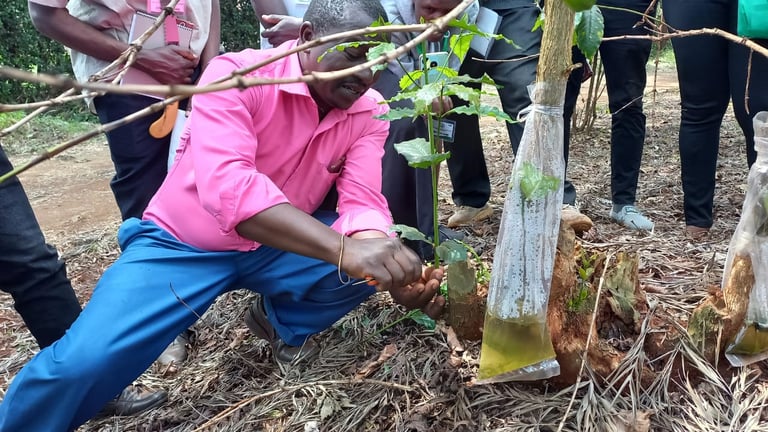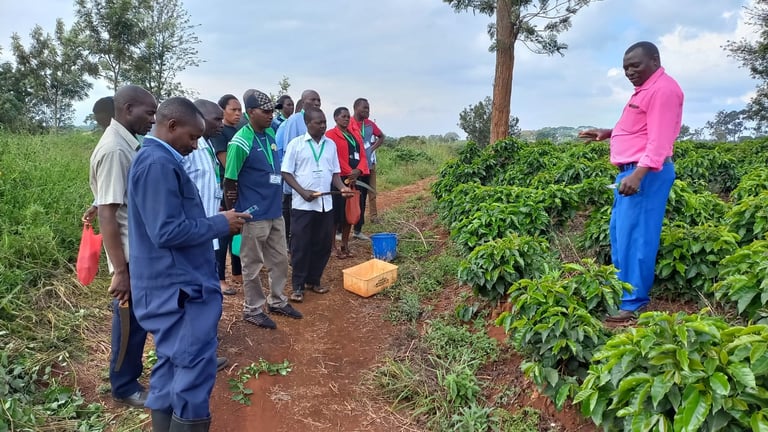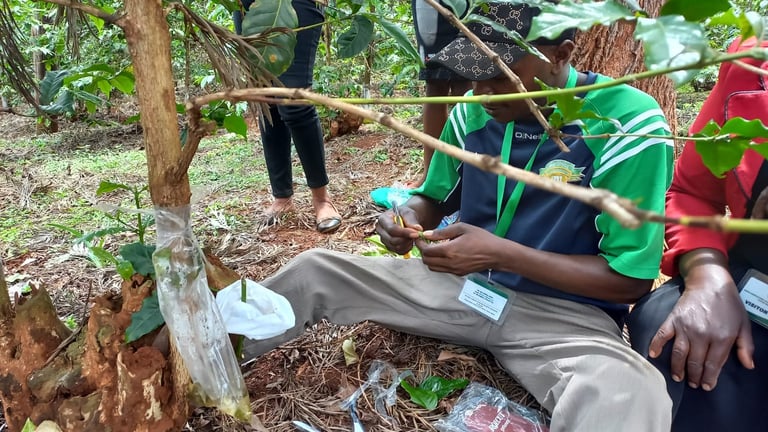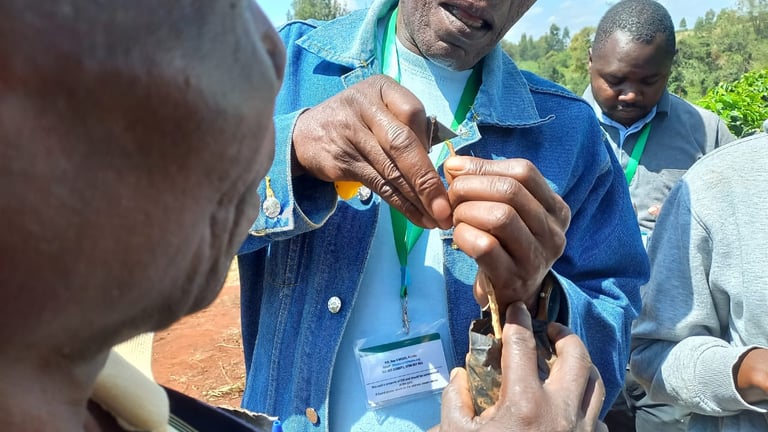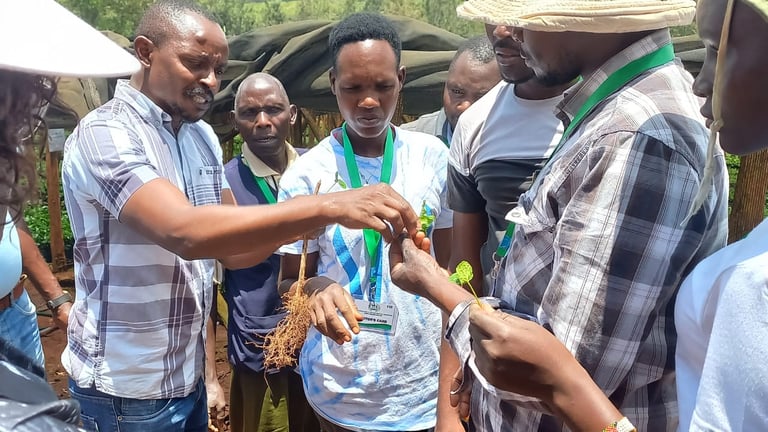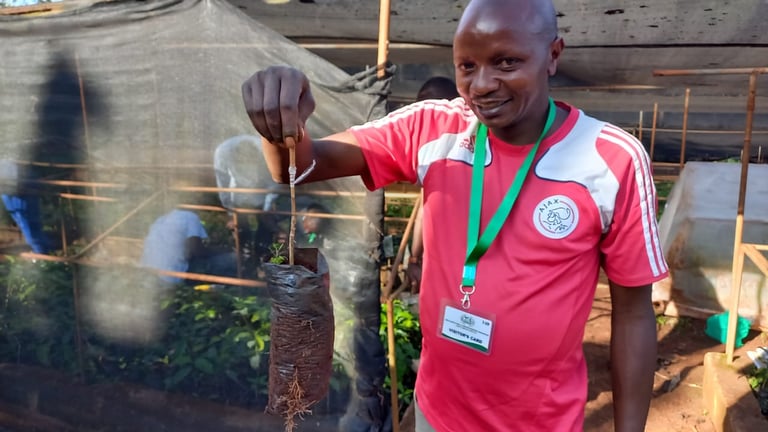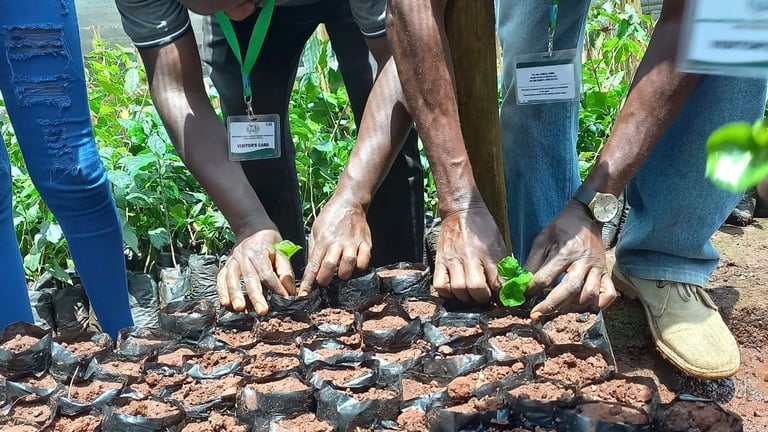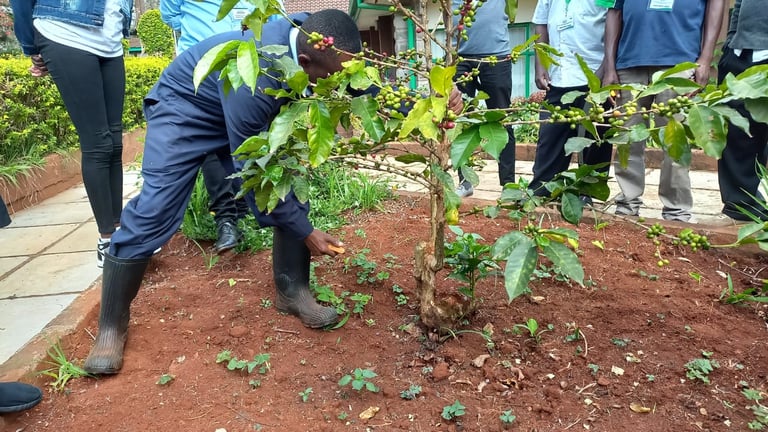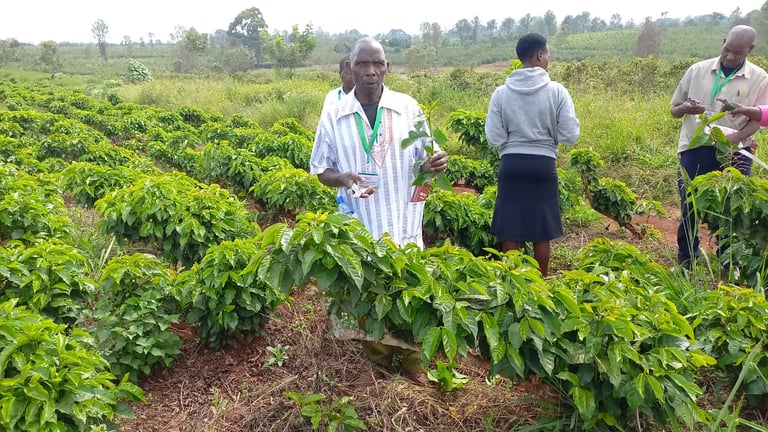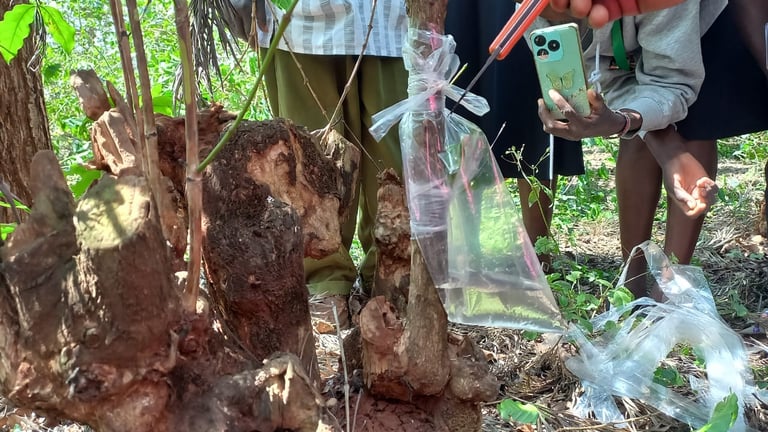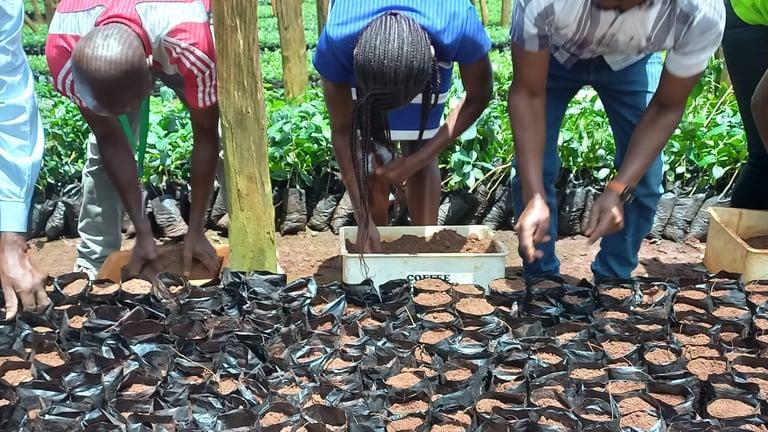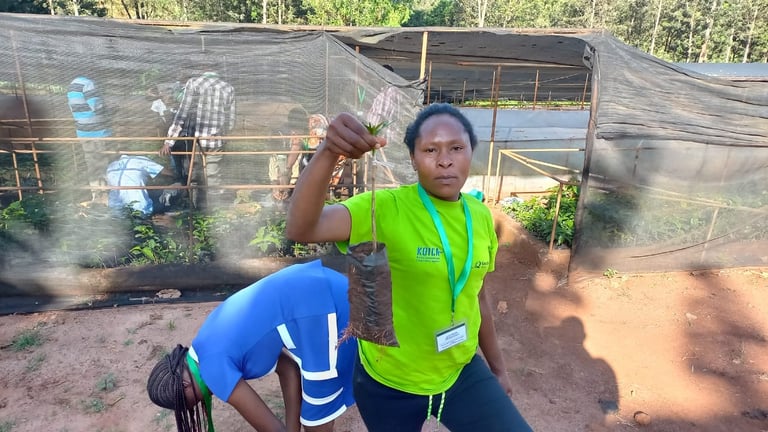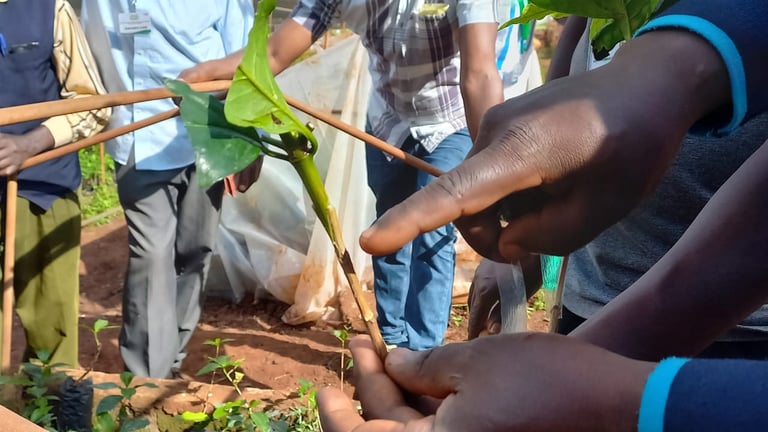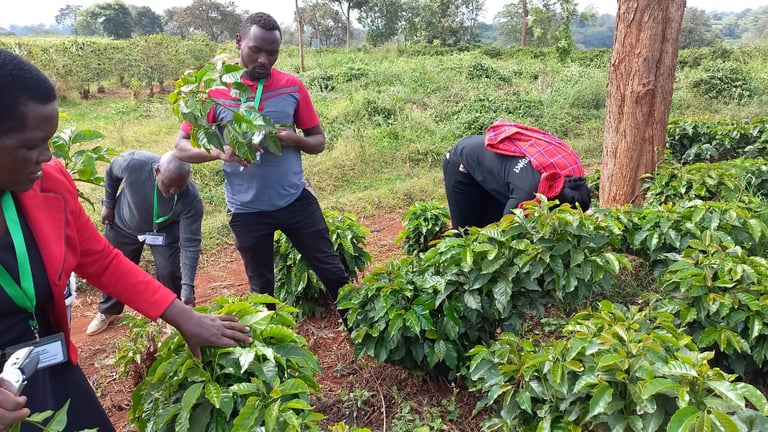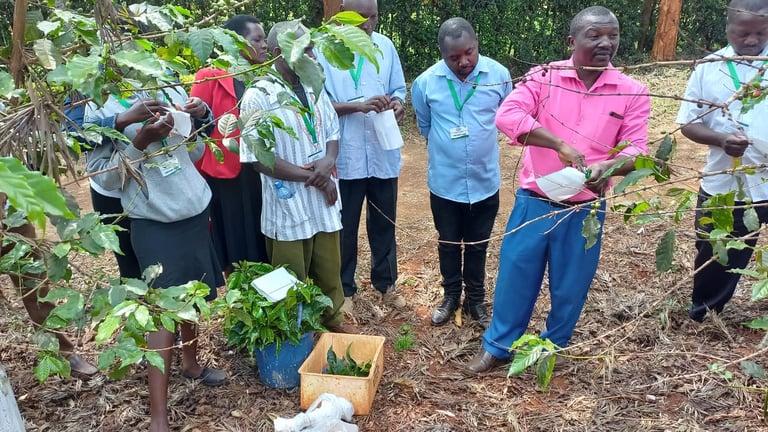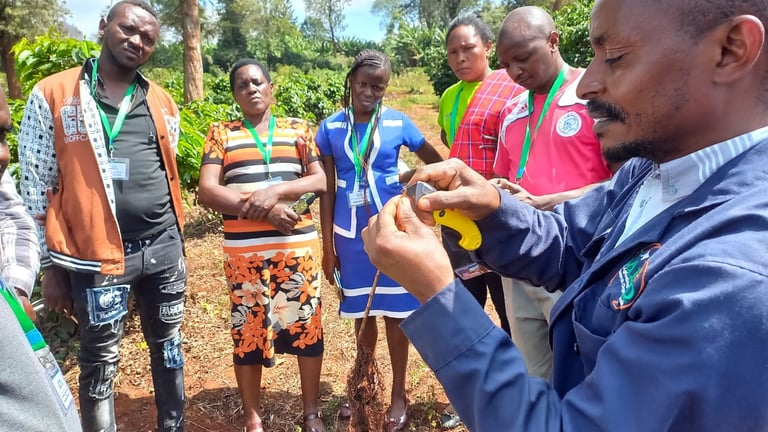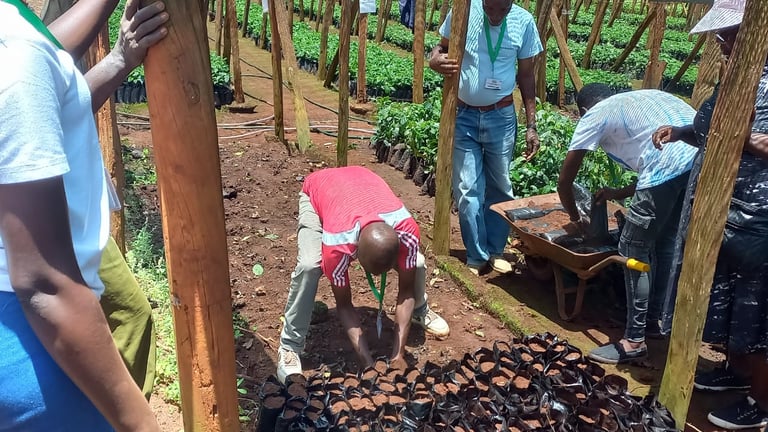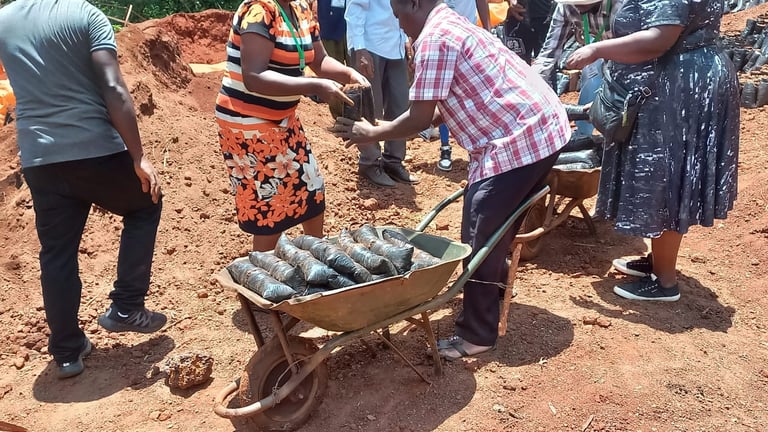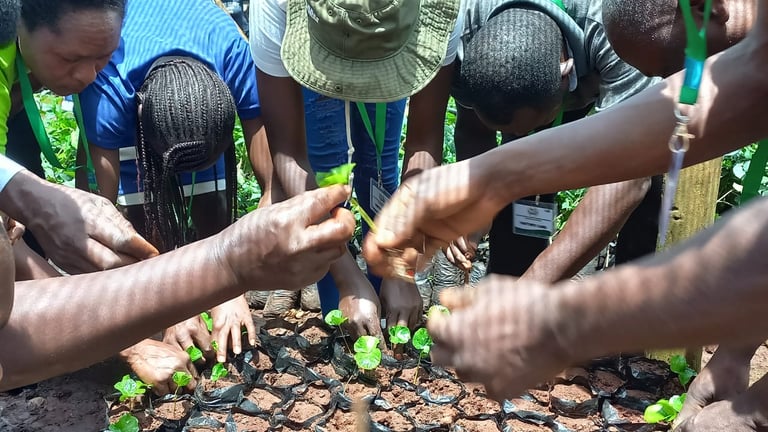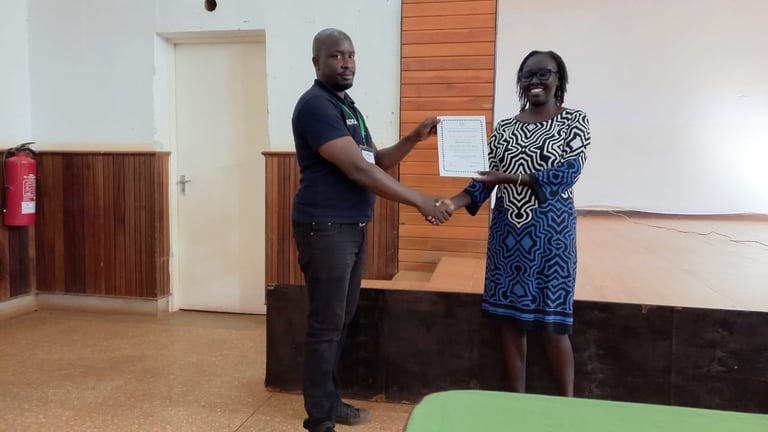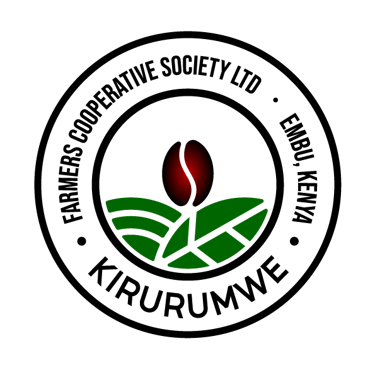Enhancing Nursery Management Skills: Nursery Management Training: Empowering Coffee Farmers for Sustainable Production
COMMITTEEBLOG POST
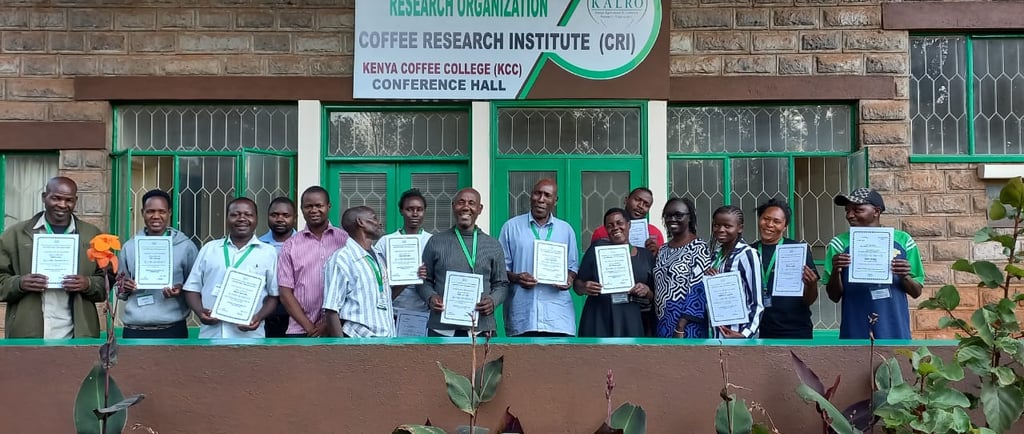

Introduction to Nursery Management Training
From October 8th to 10th, 2024, the Kirurumwe Farmers Cooperative Society (KFCS) hosted an essential training session on nursery management at the Coffee Research Institute (CRI) in Ruiru, Kiambu County. This training was attended by the nine selected members of the KFCS Nursery Management Committee (NMC), along with an agronomist from Good Neighbors Kenya (KGN). The session was part of a broader capacity-building initiative designed to support coffee farmers in Embu County.
The Nursery Management Committee was established to effectively oversee the management of the coffee nursery, ensuring the production and availability of healthy, high-quality seedlings for KFCS farmers. The committee comprises nine members, each representing one of the three factories within the cooperative, with three members from each factory. This structure aims to ensure that all areas of the cooperative are well-represented and actively involved in the management and development of the nursery.
Objectives of the training
The training was structured to cover both theoretical knowledge and practical skills required for managing a coffee nursery. This training was pivotal in preparing participants for the establishment of a new nursery at the KFCs factory in Kianjuki, enhancing their skills in effective nursery management. The goal was to equip the NMC members with the necessary tools to oversee the construction and operation of a new coffee nursery, which is slated to begin operations at Kianjuki Factory. This nursery, part of KFCS's income generation program, will produce 20,000 to 30,000 coffee seedlings annually and eventually include a clonal garden for grafting and top-working, benefiting local farmers with affordable, high-quality coffee plants.
Key Learning Areas
The training, meticulously designed to cover a wide range of topics, was structured to provide both theoretical insights and practical skills essential for the successful establishment and maintenance of coffee nurseries. Below is an in-depth look at the key areas covered during this enriching training.
1. Overview of Quality Coffee Production
The training began with a deep dive into the fundamentals of quality coffee production. This module aimed to equip participants with the essential knowledge required to produce high-quality coffee. The session highlighted several key components critical to success in coffee farming:
Coffee Varieties: Participants learned about different coffee varieties, their attributes, and how to choose the right variety based on environmental conditions and market needs.
Coffee Establishment: The establishment of coffee plants was discussed, focusing on the best practices for planting and nurturing coffee from the start.
Coffee Nutrition: Proper nutrition is essential for healthy coffee plants, and the training covered the nutritional requirements of coffee, focusing on soil fertility and the right balance of nutrients.
Canopy Management: The importance of canopy management in coffee farming was emphasized to ensure that coffee trees receive the optimal amount of sunlight and air circulation, which are critical for robust growth.
Crop Protection: Effective strategies for protecting coffee plants from pests and diseases were also shared, ensuring that participants understood the need for integrated pest management systems.
2. Overview of Coffee Processing
The training moved on to an overview of coffee processing, which is a crucial step in producing high-quality coffee. Participants gained valuable insights into the various methods of processing coffee after harvesting, which includes steps like pulping, drying, milling, and sorting. Understanding these processes helps farmers enhance the quality of their final product and meet market standards.
3. Introduction to Nursery Management
The core of the training was centered around the management of coffee nurseries, as a well-maintained nursery is the foundation of a successful coffee farm. Key topics included:
Choice of Coffee Varieties and Their Attributes: Participants were introduced to various coffee varieties, with a focus on selecting the most suitable varieties for their local conditions. Understanding the attributes of each variety helps in making informed decisions that align with the farmers’ goals.
Nursery Registration: The training provided practical guidance on how to register a nursery, ensuring that participants understood the legal requirements for setting up a coffee nursery.
Source of Seeds: Understanding where to source high-quality seeds was another critical point of discussion, emphasizing the importance of using disease-free, certified seeds to start a healthy nursery.
Nursery Structures: The design and construction of nursery structures were covered, with a focus on providing the right conditions for seedlings to thrive. This includes shade management, space for growth, and protection from the elements.
Visit to a Demonstration Site: To reinforce the learning, a visit to a local demonstration site allowed participants to observe practical examples of nursery management in action. This hands-on experience provided a clearer understanding of the theoretical concepts taught.
4. Coffee Propagation
A significant portion of the training focused on coffee propagation, where participants learned various methods of multiplying coffee plants. These methods are essential for creating new plants and expanding coffee production:
Clonal Garden Establishment: The establishment of clonal gardens was explained in detail, showcasing how to propagate genetically identical coffee plants to ensure uniformity in yield and quality.
Propagation by Seeds, Cuttings, Grafting, and Tissue Culture: Various propagation techniques were discussed, including seed propagation, vegetative propagation through cuttings, grafting, and the advanced technique of tissue culture, which allows for the mass production of high-quality coffee plants.
Potting Media: The correct composition of potting media is crucial for the healthy growth of seedlings. The training provided practical sessions on how to prepare potting media that promotes strong root development.
Practical Sessions: Hands-on experience was an integral part of the training, allowing participants to practice clonal garden establishment, propagation, and potting media preparation. These practical sessions gave farmers the confidence to implement these methods in their own nurseries.
5. Coffee Varietal Conversion
A key element of the training was focused on coffee varietal conversion, which is the process of changing one coffee variety to another to improve quality or adapt to changing environmental conditions:
Preparation of Trees for Conversion: The training covered how to prepare existing coffee trees for varietal conversion, ensuring a smooth transition from one variety to another.
Source of Scions: Participants were taught how to source healthy, disease-free scions (the grafted part of a plant) for successful conversion.
Methods: Side and Top Working: Two primary methods of varietal conversion were discussed: side working and top working, which involve grafting new varieties onto existing coffee trees.
Practical Sessions: Practical demonstrations on side and top working techniques were conducted, giving participants the opportunity to practice these grafting methods themselves.
6. Maintenance of Nurseries
The final part of the training focused on maintaining healthy nurseries, which is essential for ensuring long-term productivity. Key maintenance practices discussed included:
Disease and Insect Pest Management: Participants learned how to identify and manage diseases and pests that may affect the health of coffee plants, with a focus on organic and sustainable pest control methods.
Watering: Proper irrigation techniques were emphasized to ensure that coffee seedlings receive adequate water without overwatering, which could lead to root rot.
Fertility Management: Managing soil fertility is crucial for healthy plant growth. The training covered how to maintain soil health through the appropriate use of fertilizers and organic matter.
Hardening: The process of hardening seedlings, where plants are gradually acclimatized to outdoor conditions, was discussed to ensure strong and resilient coffee plants ready for transplanting.
Practical Application and Demonstration
In addition to the theoretical knowledge shared, the training featured practical sessions that provided participants with a hands-on experience. They learned about sourcing seeds effectively, understanding nursery structures, and the significance of seed quality in establishing a thriving nursery. A highlight of the training was a visit to a demonstration on coffee propagation, allowing participants to witness best practices firsthand.
By the end of the training, the nursery management committee members and the agronomist left with a renewed sense of confidence and knowledge regarding the upcoming nursery establishment. The integration of theory and practice in this training contributed significantly to ensuring that participants are well-prepared for their roles in managing the new nursery at KFCs factory in Kianjuki.
Conclusion
The nursery management training held at CRI was instrumental in equipping the participants with vital skills and knowledge necessary for successful nursery management. As the KFCs factory in Kianjuki looks forward to the establishment of its nursery, the insights gained from this training will prove invaluable in achieving high-quality coffee production. Moving forward, a well-managed nursery is key to ensuring sustainable growth in the coffee sector and fostering overall agricultural success.
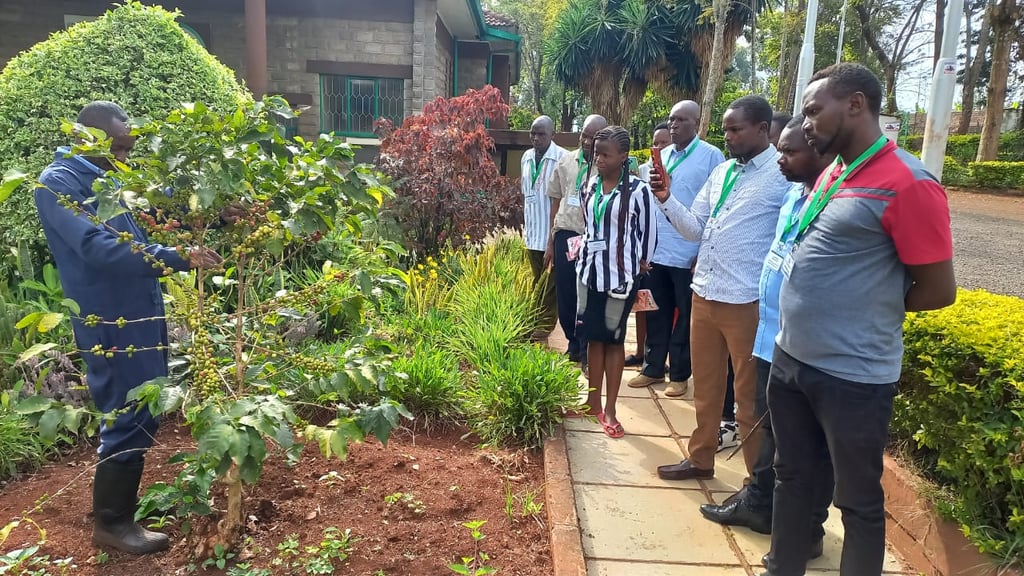

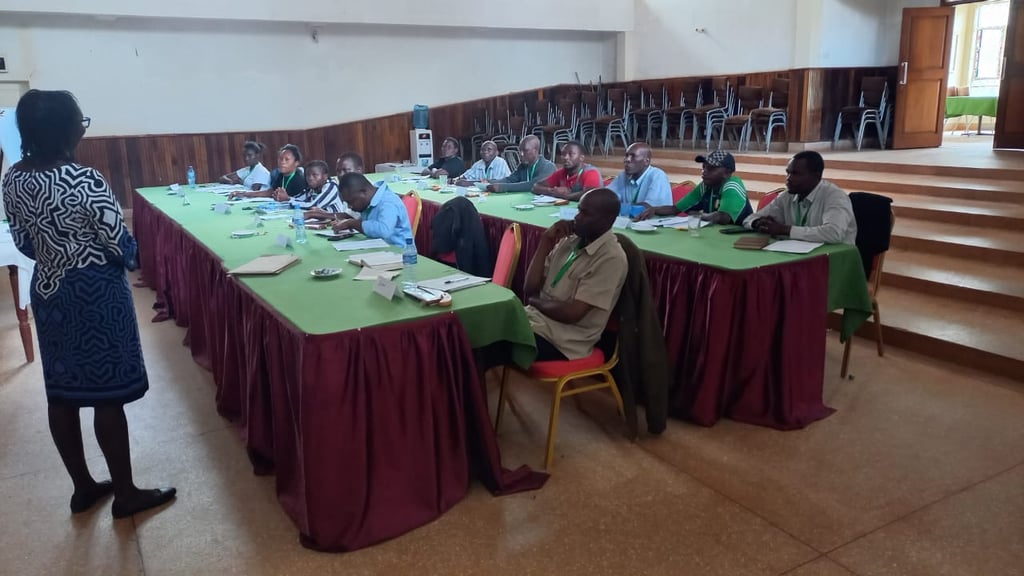

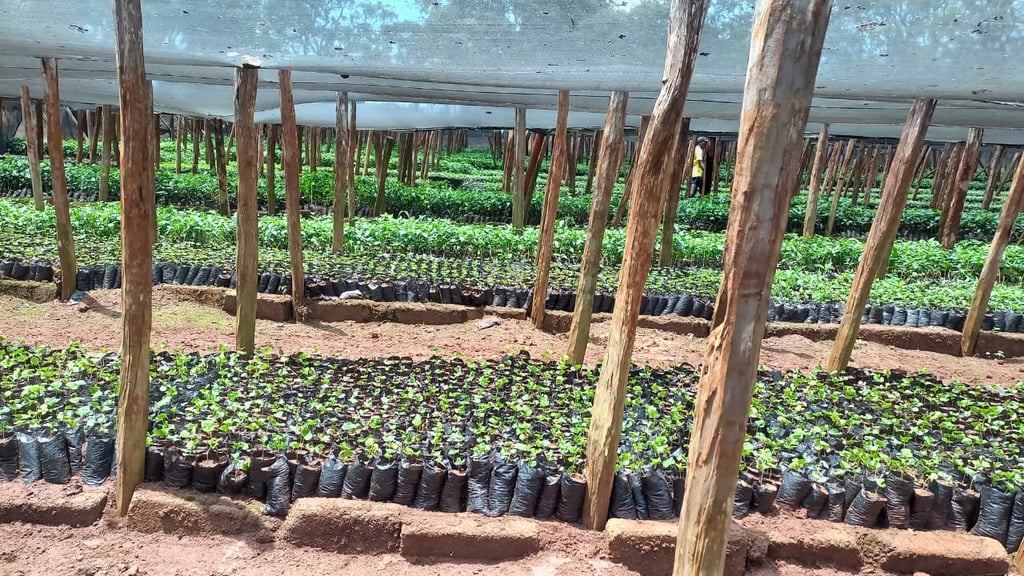

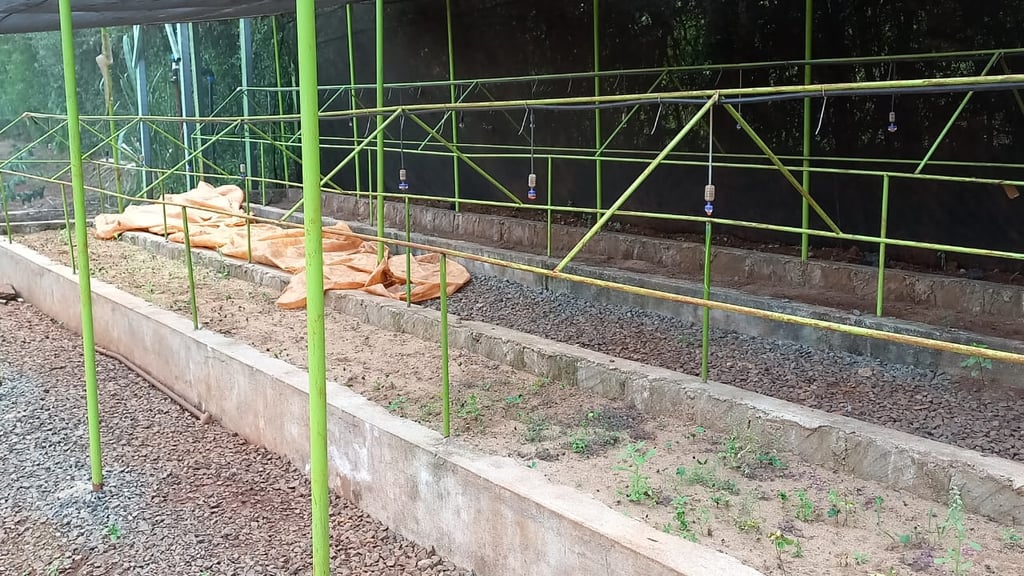

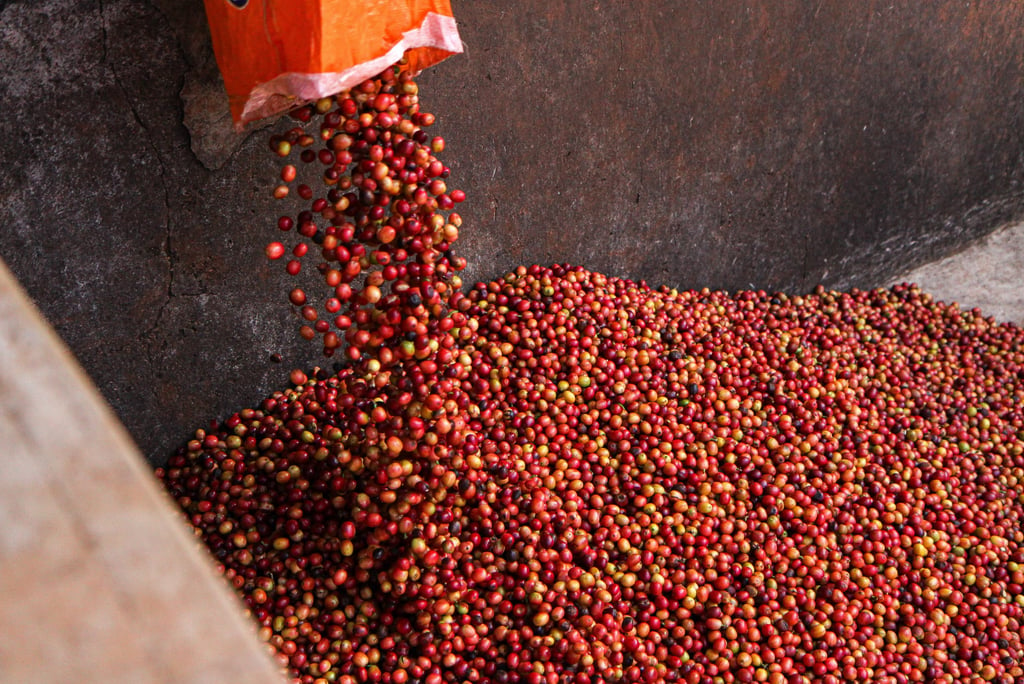

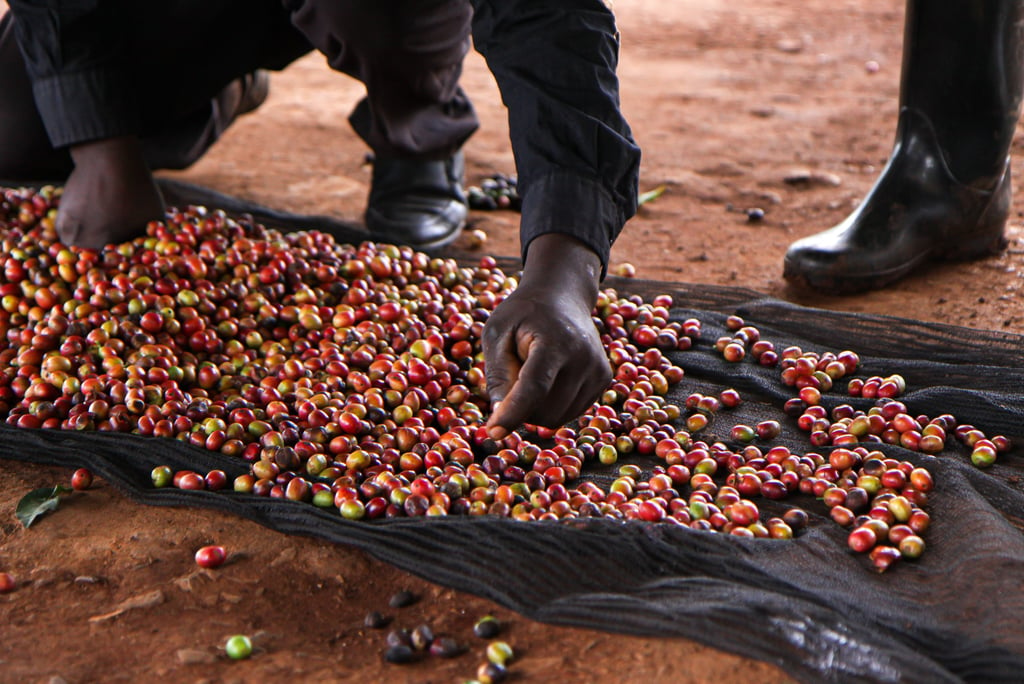

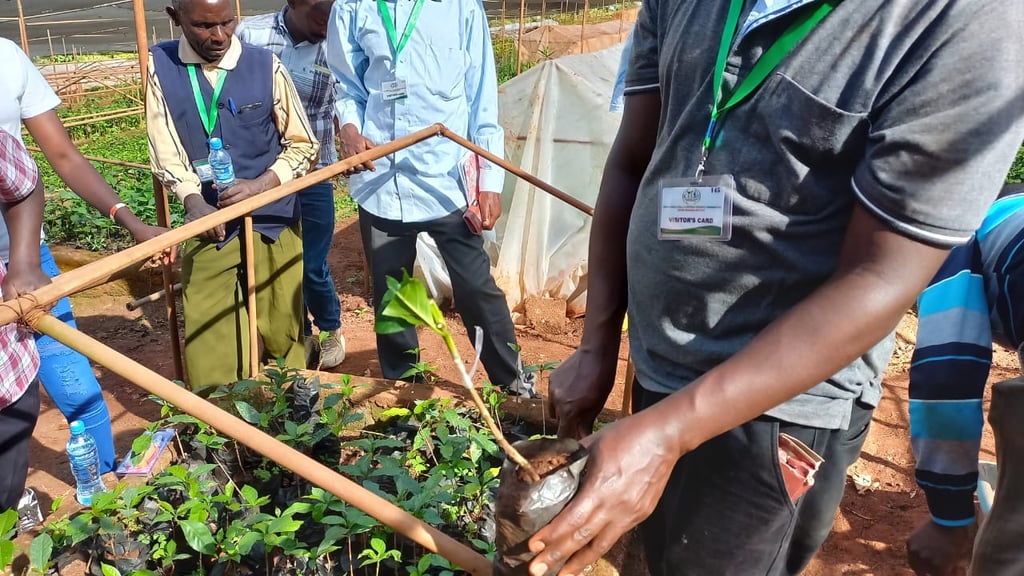

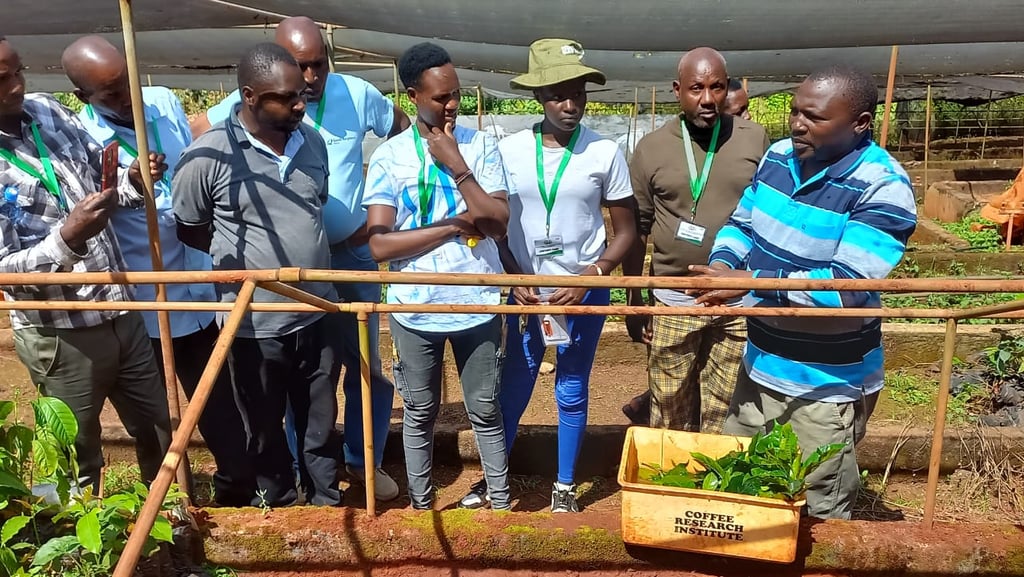

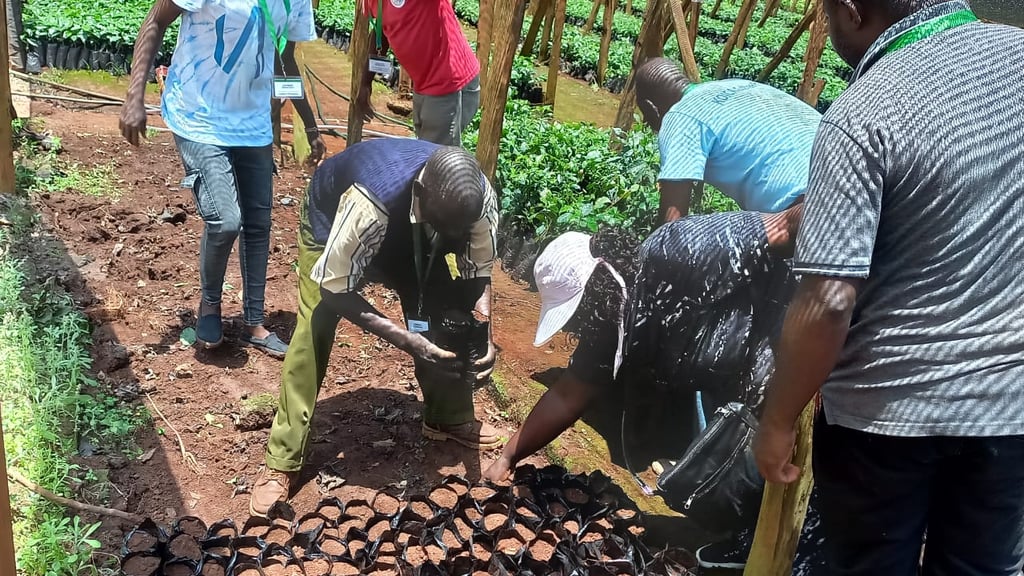

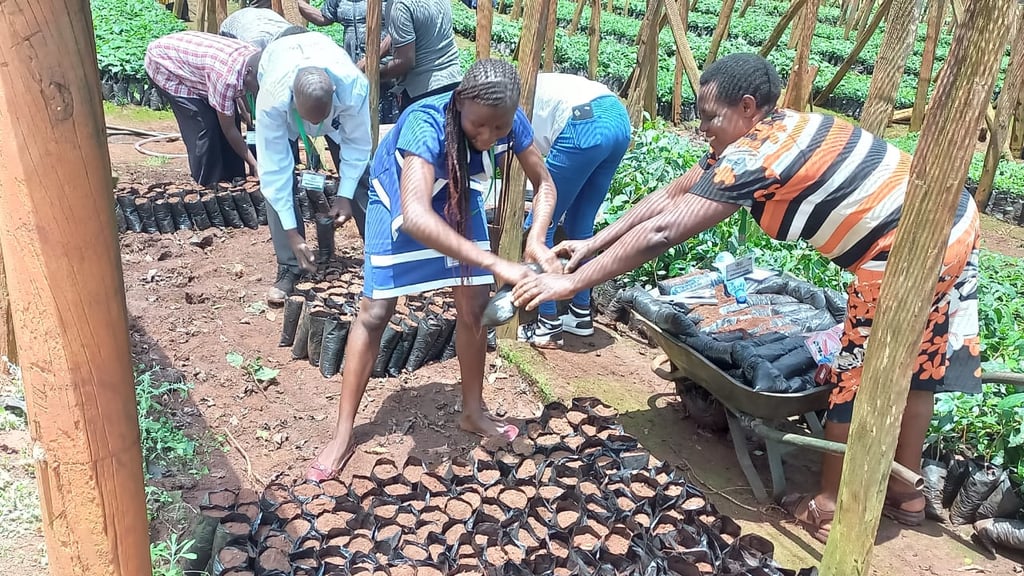

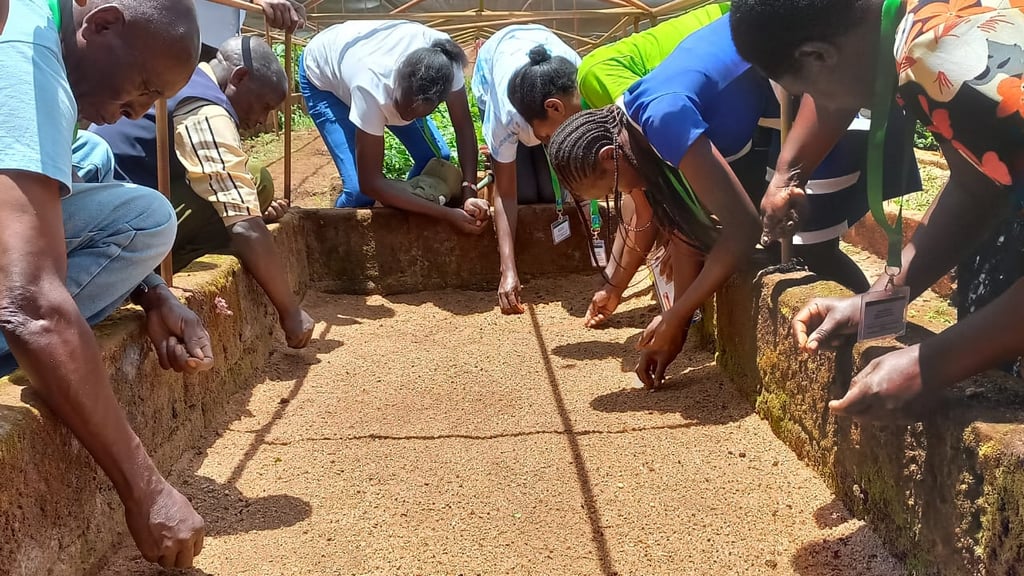

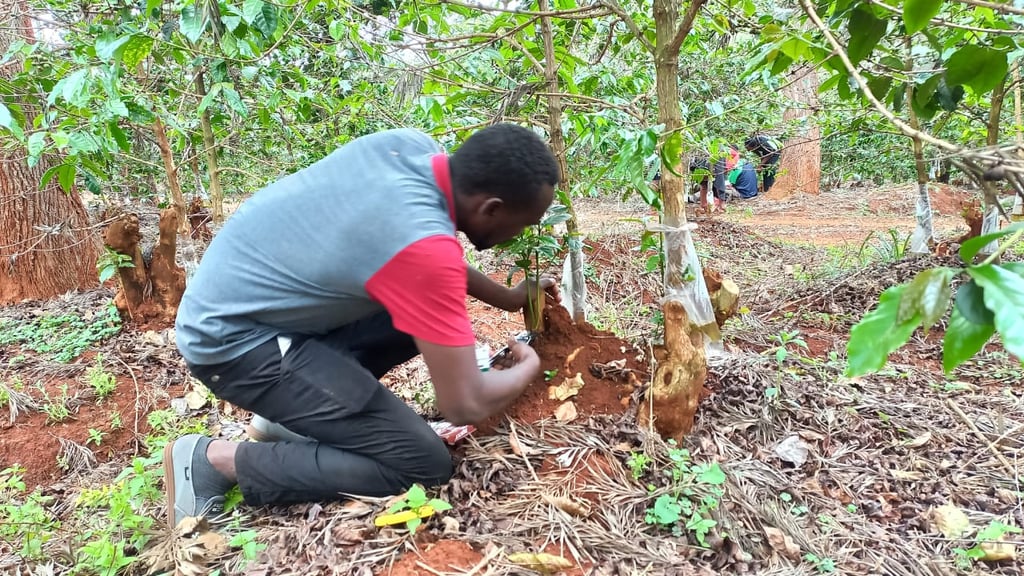

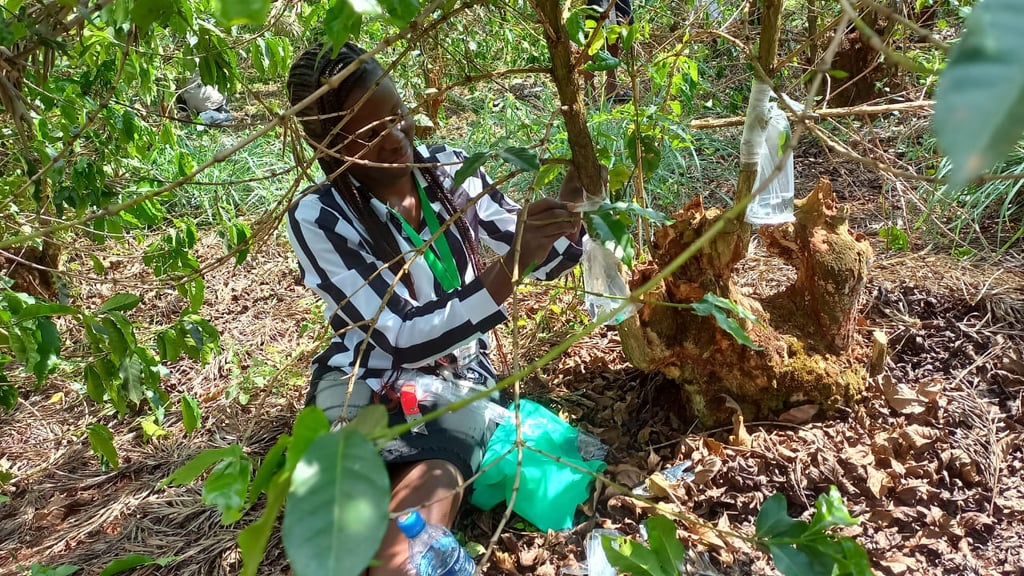

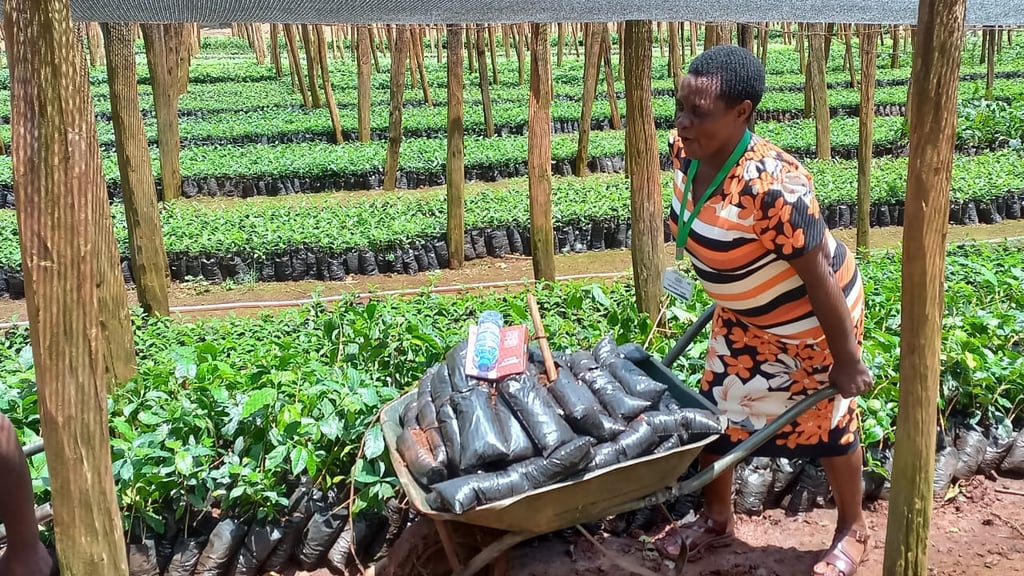

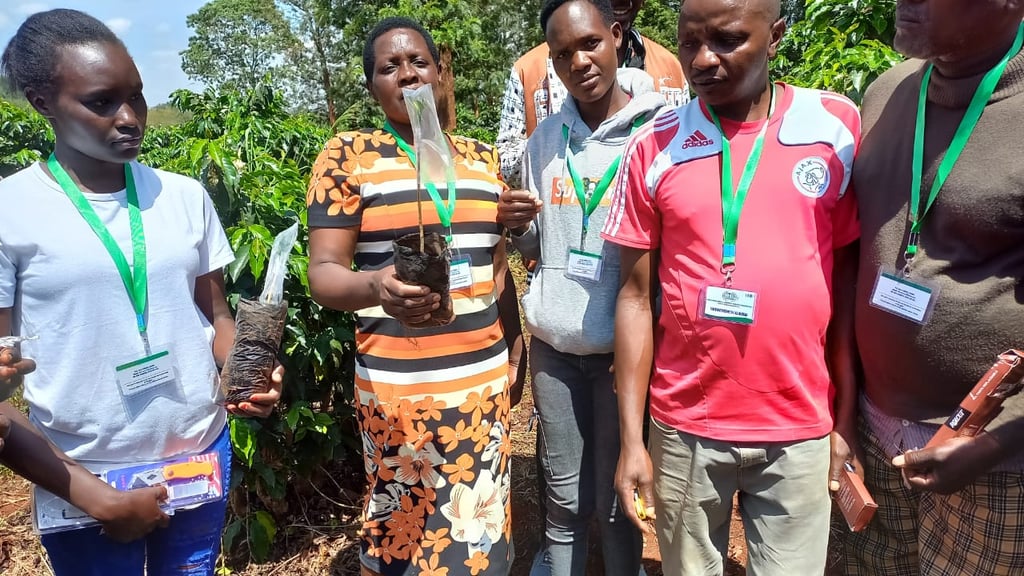

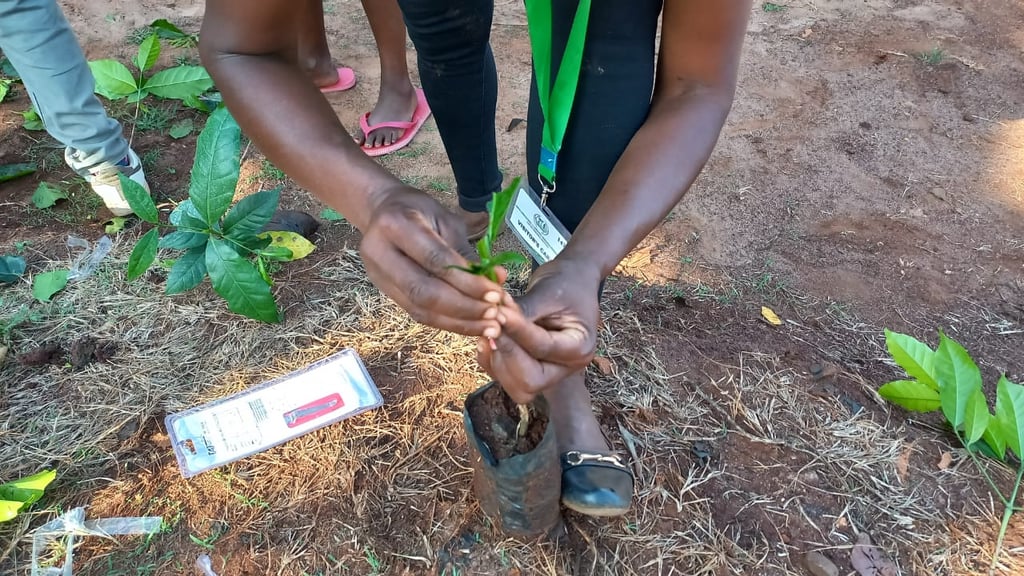

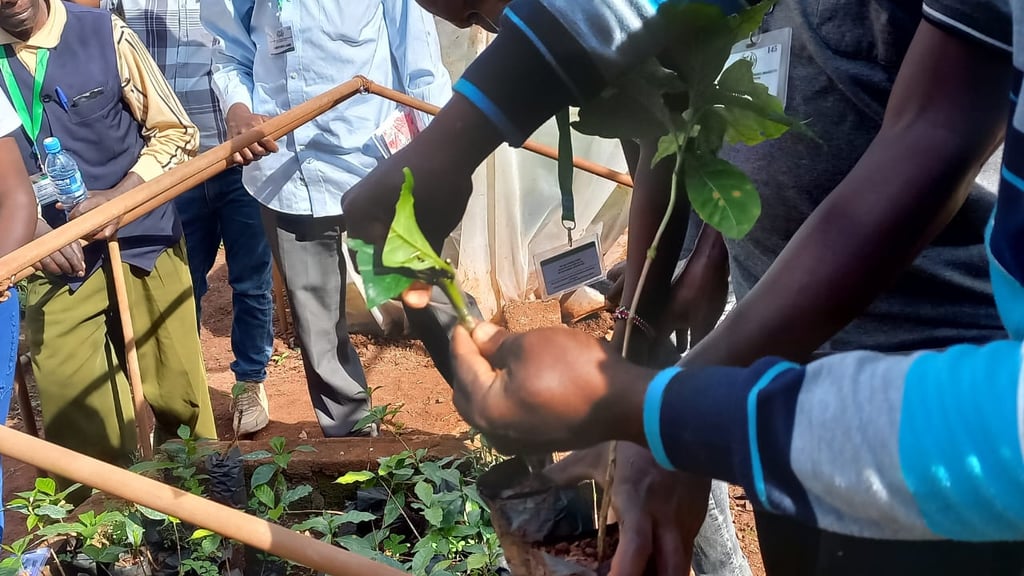

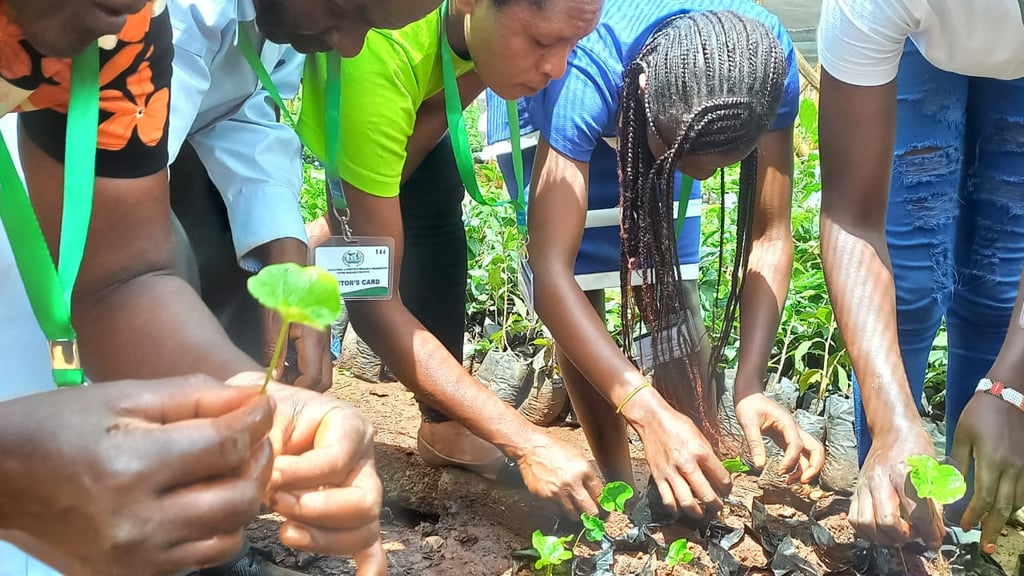

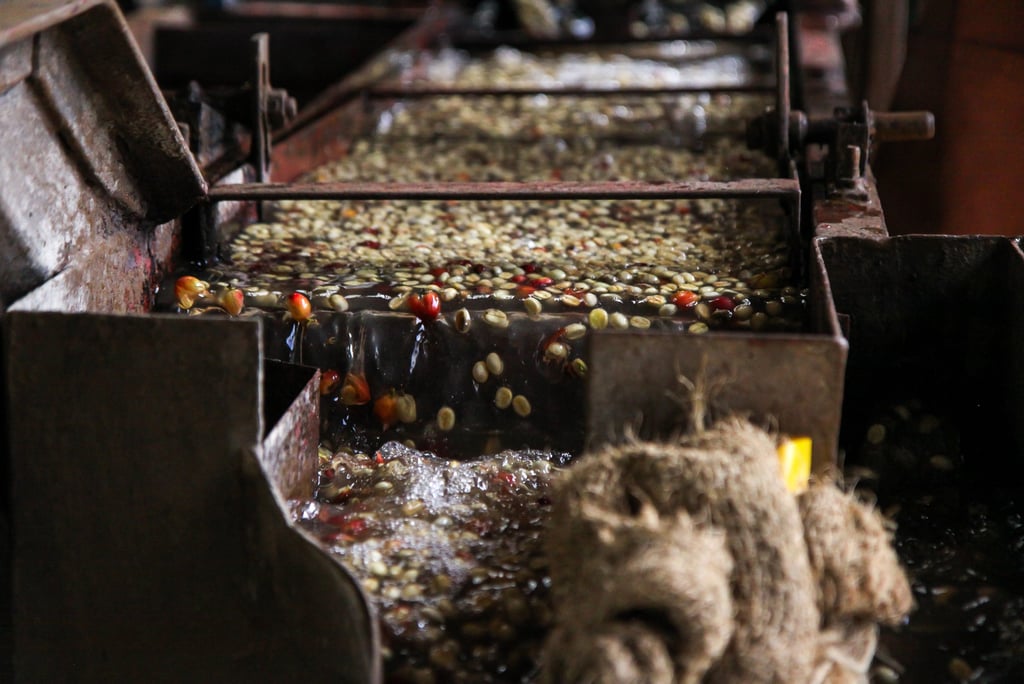

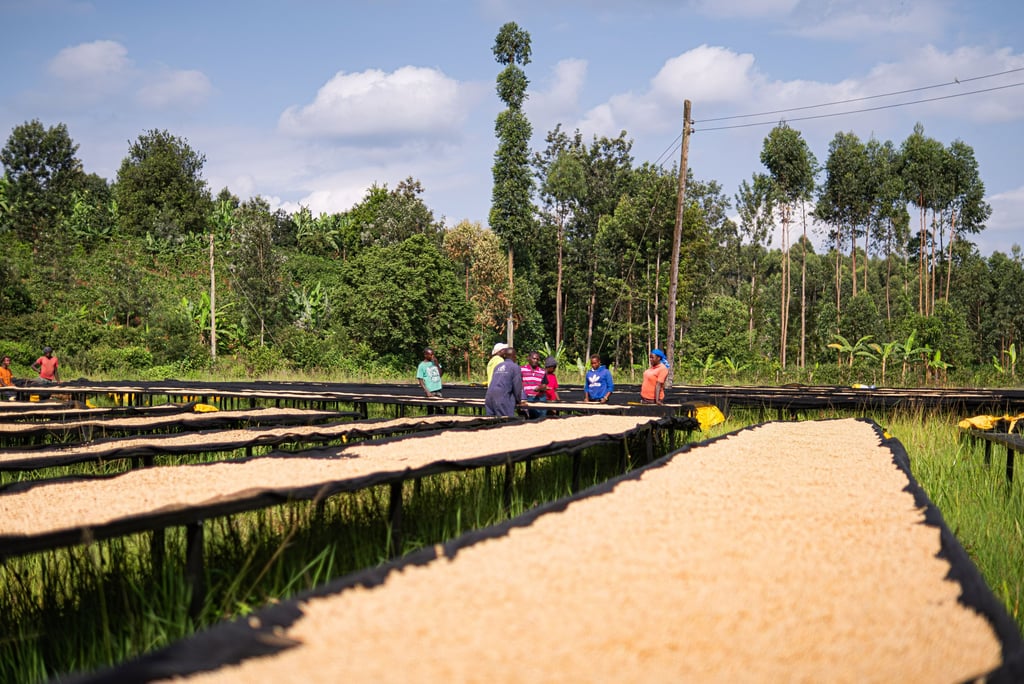

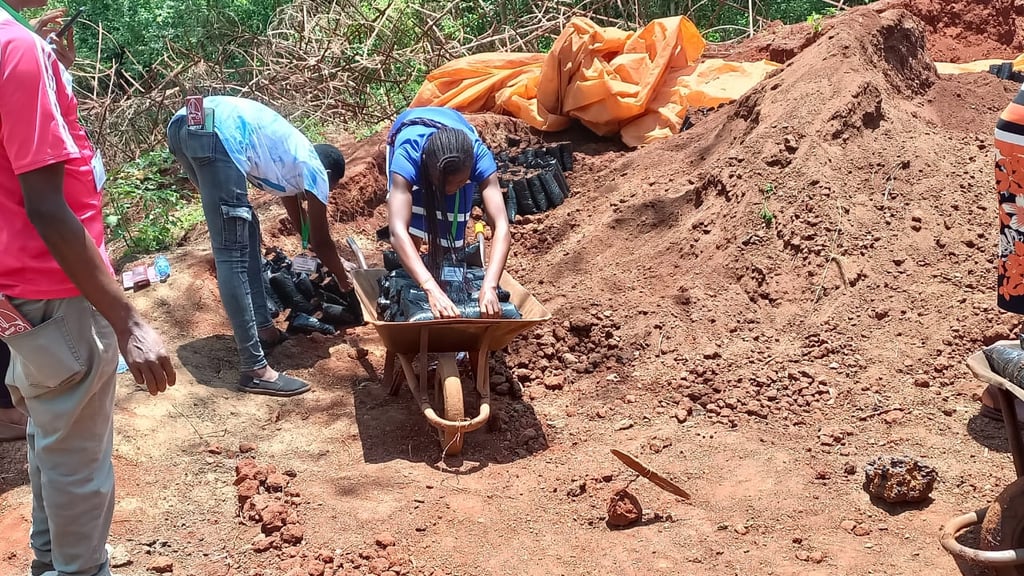

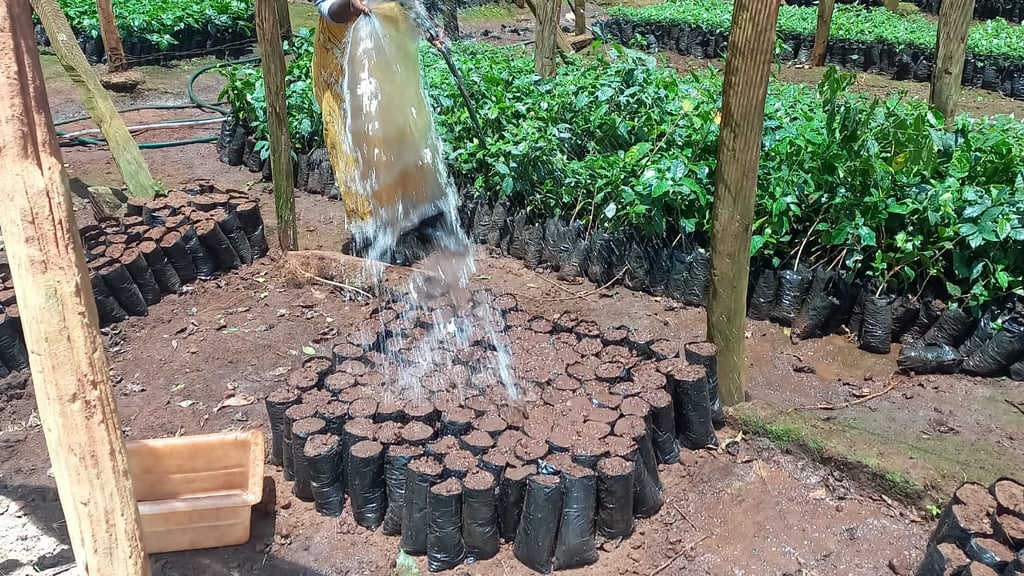

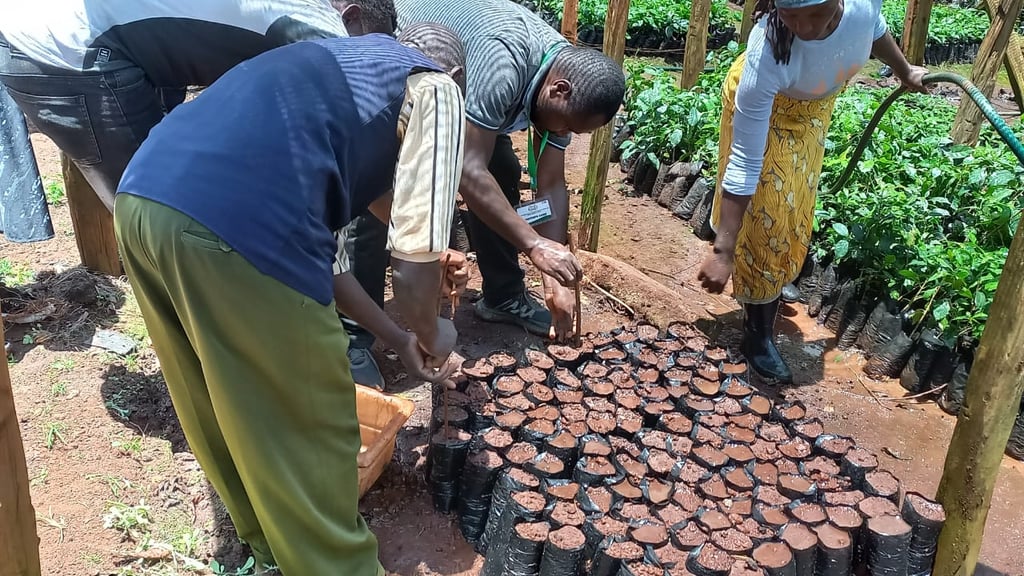

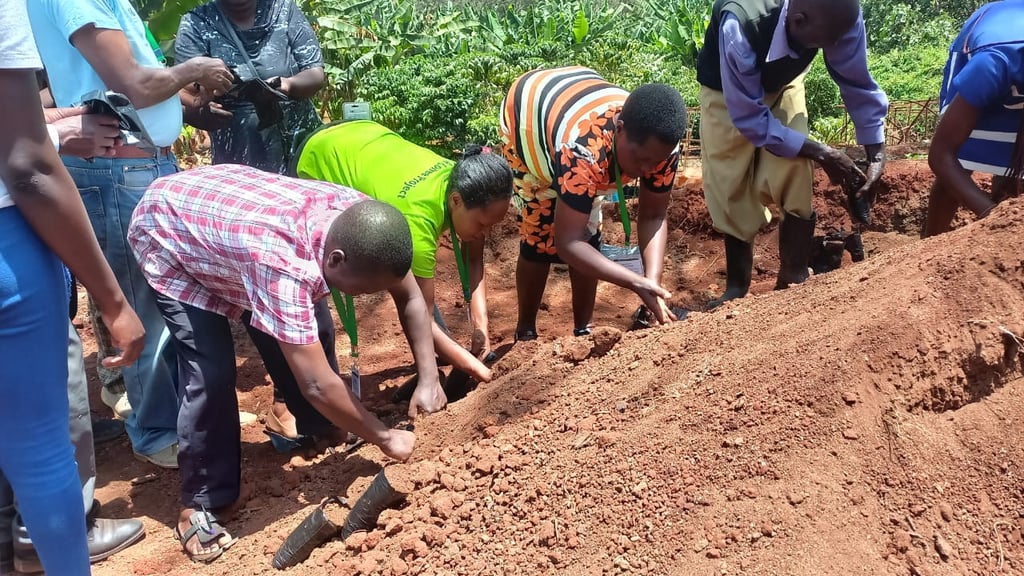

Nursery Management Training
"Cultivating Healthy, High-Quality Coffee Seedlings for Tomorrow"
